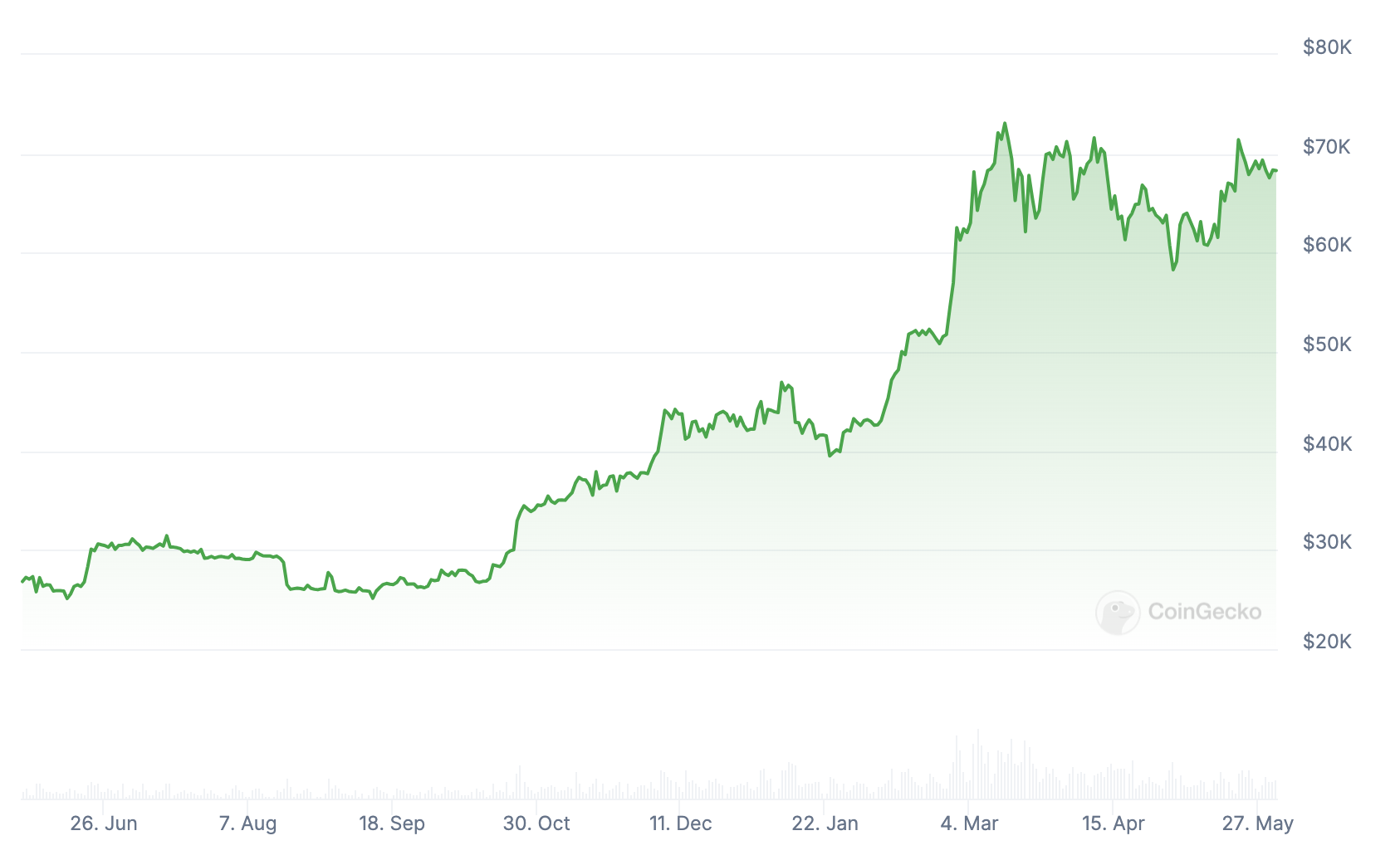Cryptocurrencies have definitely picked up speed since the same time last year, with Bitcoin prices flirting at the $70000 level these few months.
It didn't seem too long ago when people were mourning that "Crypto is dead" and likening it to the infamous tulip mania phenomenon. However, things have definitely taken a positive turn since the dark days of LUNA and FTX. We're seeing increased institutional adoption of digital assets. Bitcoin just reached a billion transactions earlier this month. Funds are pouring into various cryptocurrency ETFs, with reputable financial institutions like Wells Fargo having some skin in the game. Evidently, things look better than ever for cryptocurrencies, but why do some of the biggest names in finance, like Jamie Dimon (CEO of JP Morgan), still condemn it?
The technology is real.
I do not doubt that blockchain is a highly disruptive technological breakthrough. The science and code behind it makes sense, and surely does bring utility in the near future. It is highly possible that we see increased adoption of such tech in modern-day online security, financial services and many other sectors. While there is a danger of wallet or system hacks, and potentially increased risk of money laundering, I do believe that these things can be mitigated with sufficient development in tracking technology and overall wallet security.
Crypto as an inflation hedge does not seem too bad.
One of the biggest arguments for investing in cryptocurrency is that the value of the dollar is not certain. Ever since Nixon suspended the gold standard, the US government has been printing new dollars by the trillions. Clearly, the purchasing power of our money is often not in our control. As such, we often see investors flocking to other tangible assets which hold their value — like gold, silver and other precious metals. The more savvy ones look to certain cryptocurrencies as the hedge against inflation. The common trait among these options is their scarcity. Precious metals are a naturally occurring phenomenon, and certain cryptocurrencies like Bitcoin have a fixed supply. Holding such assets instead of cash, which is printed out of thin air, seems to make more sense in these turbulent economic conditions.
The valuation is the problem.
While I agree with the tech and the general investment objective, what I can't get behind is the valuation. It's so challenging to determine a good amount to pay for these tokens. When calculating the intrinsic value of a stock, it's not difficult to pull up the company's financial statements and conduct a thorough analysis using valuation models — the discounted free cash flow model being one of the most common. The resulting valuation is based on proper, tangible fundamentals. However, there's far less clarity when determining the fair value to pay for a cryptocurrency token. Even if the technology works (which it does!), how do we know if a Bitcoin should be worth $7 or $70000? Heck, maybe even $700000 is possible. Whether a coin is overvalued, undervalued, or just right, is often up to speculation. While there have been proposed methods to determine an intrinsic value for these tokens, they are often not rooted in tangible metrics. I genuinely cannot decide which is worse — letting my dollars slowly die to inflation, or buying a token whose 'fair' value is determined by its own investors.
The Bottom Line
In my opinion, the bottom line is that investing in cryptocurrencies today remains a speculation. Despite recent optimism in the crypto space, the fundamental problem of valuation remains. I am not against change — in fact, I'm all for a world integrated with cryptocurrencies and blockchain if the existing regulatory and security issues can be solved in the near future. What I'm talking about is cryptocurrency as an investment, alongside stocks, bonds and other investment instruments. I will admit that I do hold some Bitcoin and Ethereum, but it's more of speculation than anything. It's hardly similar to investing in a business and its growth prospects.
